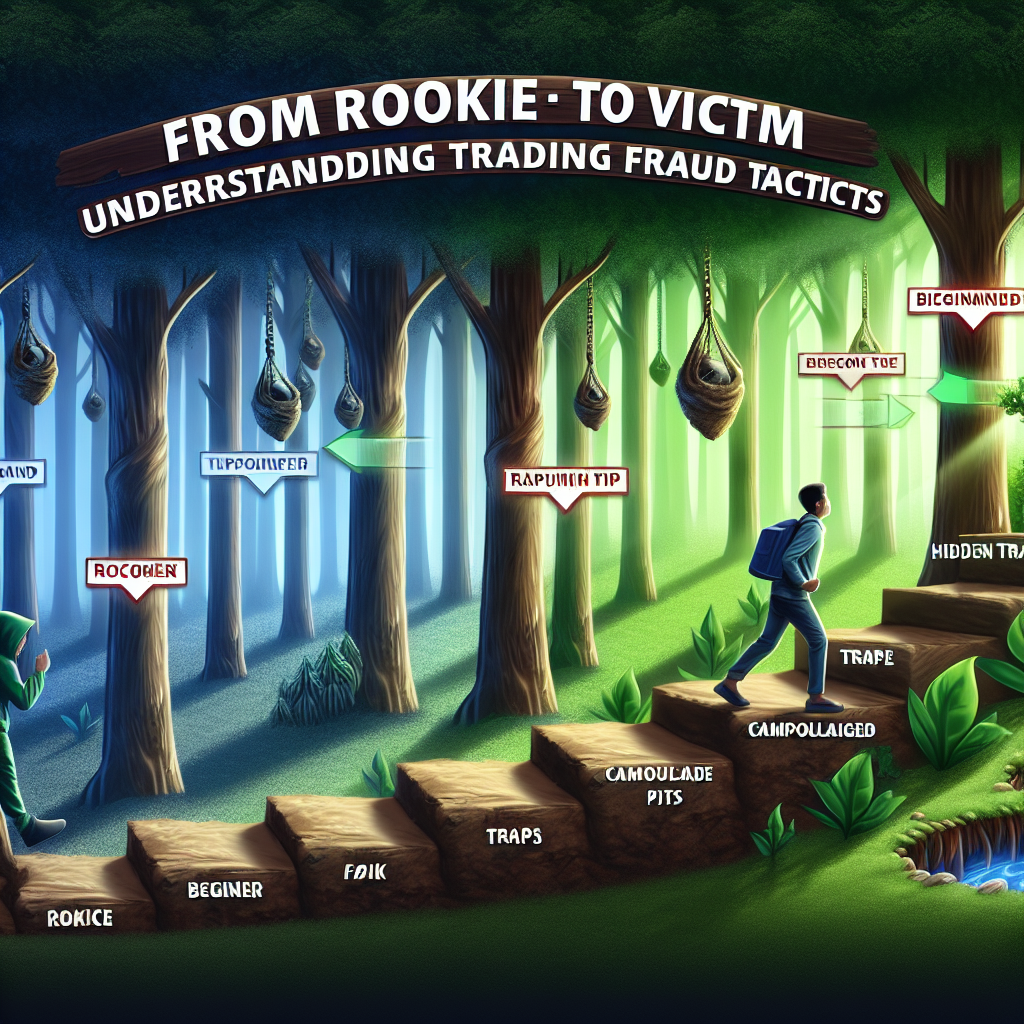
It’s a jungle out there in the trading world. You can barely navigate without bumping into some scam or another. Traders, especially the rookies, often fall prey to these cunning fraud tactics. Let’s dive into the shady side of trading and learn how not to become a victim.
Contents
The Allure of Trading: A Double-Edged Sword
Trading offers the promise of quick riches and financial freedom. For many, it’s more than just a job; it’s a dream. But here’s the catch: where there’s money, there are con artists ready to pounce. They capitalize on eagerness and inexperience, making trading fraud more common than ever.
Common Trading Fraud Tactics
Fraudsters have a playbook filled with tricks to deceive innocent traders. Below are some underhanded tactics they use:
Pump and Dump Schemes
This is where the fraudsters artificially inflate stock prices. They spread false information, luring traders to buy shares. Once the price peaks, they sell off, leaving new traders with worthless stocks.
Ponzi Schemes
We’ve all heard of these. Promises of high returns with little risk draw people in. The fraudsters pay returns to earlier investors using funds from the newest investors, not any actual profit. Eventually, the whole scheme collapses.
Phishing and Identity Theft
Fraudsters often set up fake trading platforms or send emails that look legitimate. Once you share your data, you’re open to identity theft.
Unregulated Brokers
These brokers promise the world but don’t adhere to any regulations. Without legal oversight, there’s no guarantee you’ll see any profits, or your initial investment, again.
Signal Selling Scams
These frauds offer "insider" tips for a fee. Once you pay up, you find these tips base on nothing but fiction.
A Table of Tricks and Traps
Here’s a snapshot to help you spot these scams before they snare you:
| Fraud Tactic | Description | Warning Signs |
|---|---|---|
| Pump and Dump | Artificially inflating stock prices with hype | Unusual stock activity |
| Ponzi Scheme | Paying returns to old investors using new money | Too-good-to-be-true returns |
| Phishing | Emails or platforms designed to steal your data | Poor grammar, sketchy URLs |
| Unregulated Brokers | Brokers with no oversight from financial bodies | Lack of clear contact information |
| Signal Selling | Selling bogus trading tips or strategies | Urgent or emotional sales tactics |
Real-Life Examples
Many have fallen for trading scams. Some might remind you of real trading fraud stories that shook the financial world. Learning from their mistake is crucial for your safety.
How to Protect Yourself
Don’t worry; you’re not defenseless. Equipping yourself with knowledge is the best protection.
Stay Informed
Always stay updated on the latest scams. The more you know, the less likely you’ll fall for deceit. Financial news websites are your friends here.
Verify Before You Trust
Research and verify everything. Use legitimate websites to check the credibility of brokers. Reviews and ratings tell a lot.
Use Secure Platforms
Choose regulated and secure trading platforms. They often have stronger protections and legal recourse.
Limit Sharing Personal Data
Only share personal information on verified sites. Be skeptical of any unsolicited communication.
From Rookie to Victim: Transitioning Safely
Trading doesn’t have to turn you into a victim. With the right tools and awareness, you can navigate the trading jungle without falling prey.
In-Depth Questions
How can rookies identify a scam before investing?
Rookies should always be skeptical about anything too good to be true. Start by checking if the broker is registered with relevant financial authorities. Look at the broker’s history, reviews, and any community feedback.
Double-check the legitimacy of emails or platforms before providing any information. Always cross-reference any insider tips or signals with other sources. If it feels rushed or too exciting, take a step back and investigate further.
What’s the role of regulation in protecting traders?
Regulation plays a crucial role in keeping the trading field fair. Regulated brokers have to adhere to strict guidelines to ensure they don’t mislead or defraud clients. Authorities also audit and monitor these brokers regularly, holding them accountable for any discrepancies.
Traders should always prefer regulated brokers as there’s more recourse if things go haywire. Regulations add a layer of safety and trust, making it harder for scammers to operate.
Why do trading scams often target rookies?
Rookies are easy targets because they’re eager and lack experience. Scammers know that new traders are excited and may bypass due diligence in their rush to make money.
Rookies might not immediately spot the red flags or understand the risks associated with certain trading propositions. Education and cautious optimism help newbies avoid becoming victims.
Conclusion
From rookies to experienced traders, everyone can fall for fraud if they’re not vigilant. The trading world is full of opportunities, but it’s also rife with dangers. As you venture into this field, carry with you the lessons learned from those who came before. Stay informed, stay cautious, and stay secure. Avoid becoming another statistic in the world of trading fraud.
For more insights on avoiding scams, check out our guide to detecting trading fraud. Remember, smart trading demands smart thinking.






